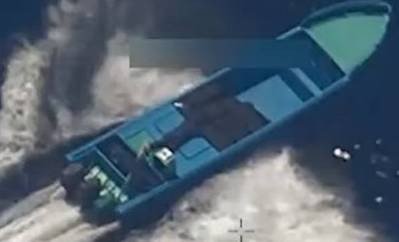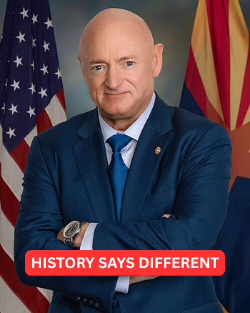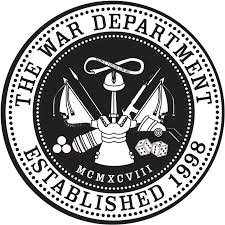By Staff Writer, John Kling
October 24, 2025 | M.A.G.A. Daily News | Updated December 1, 25
BOLD ACTION ON THE HIGH SEAS: U.S. STRIKE IN THE PACIFIC TAKES OUT DRUG TRAFFICKING VESSEL
M.A.G.A. Daily News reports—U.S. Forces takes out high speed narco boat smugglers. The phrase “Bold Action on the High Seas” is more than a slogan. It is the guiding principle of the Trump administration’s ongoing campaign to eradicate drug trafficking networks operating in international waters. Late Wednesday night, U.S. forces carried out a precision strike on an alleged drug-running vessel in the Pacific Ocean.
Resulting in six confirmed fatalities, according to Secretary of Defense Pete Hegseth. Clearly, the cartel narco smugglers do not get the message and continue their brazen attempt at posioning America.
This latest strike represents a continued escalation in the administration’s proactive approach to transnational narcotics threats. Officials report that the vessel was part of a Pacific trafficking route used to move massive quantities of illegal narcotics toward North America, making the operation a critical step in safeguarding U.S. borders and citizens. Contrastly, the cartels are losing mass drug profits by efforts by U.S. forces.
BOLD ACTION ON THE HIGH SEAS: DETAILS OF THE PACIFIC STRIKE
According to Pentagon briefings, the operation took place in international waters south of Guam, where intelligence sources had been tracking the vessel for days. The boat was believed to be transporting drugs for an organized trans-Pacific cartel, capable of evading standard maritime interdiction patrols.
U.S. forces issued repeated warnings to the vessel before engaging. When no compliance was observed, a precision-guided missile disabled the boat, causing it to catch fire and sink. Six suspected traffickers aboard were killed, and no American personnel suffered casualties. Moreover, the cartels have been warned over and over and fail to understand they will no longer posion America with their lethal fentanyl drugs.
Secretary Hegseth described the strike as an example of “bold action on the high seas,” emphasizing that the United States will not tolerate the operation of narco-traffickers in its hemisphere or in nearby international waters. “Our enemies are shipping poison to our families,” he said. “We will strike them wherever they are, swiftly and decisively.”
This strike marks the eleventh known operation in the Pacific region since early September, highlighting the administration’s commitment to proactive maritime enforcement.
STRATEGIC IMPACT OF BOLD ACTION ON THE HIGH SEAS
The Trump administration’s Pacific campaign signals a strategic shift in counter-narcotics policy, treating trafficking vessels as high-priority threats to national security rather than traditional law enforcement cases. By operating far from U.S. shores, American forces aim to intercept narcotics at the source, stopping dangerous shipments before they reach U.S. communities.
The campaign’s philosophy, encapsulated in the phrase bold action on the high seas, underscores deterrence. By demonstrating the capability and willingness to strike targets far from U.S. soil, the administration intends to send a clear message to international drug cartels: there is no sanctuary in the Pacific.
This approach integrates advanced maritime assets, including guided-missile destroyers, F-35 surveillance aircraft, and rapid-response strike teams, creating a robust network of enforcement capable of swift global action.
SUPPORTERS PRAISE THE PACIFIC STRIKE
Conservative leaders and law enforcement veterans have lauded the operation. Representative Marjorie Taylor Greene called it “the first real display of American strength against Pacific trafficking routes in years.” Retired Admiral James Porter echoed her sentiment, stating, “These are not fishermen. They are international drug couriers. Every shipment threatens our children and communities. Bold action on the high seas is exactly what is required.”
Public opinion in the United States appears supportive, particularly in regions affected by the fentanyl crisis. Many Americans welcome decisive military intervention, arguing that conventional interdiction methods have repeatedly failed to curb the flow of illegal narcotics.
CRITICS QUESTION LEGALITY AND CIVILIAN SAFETY
Despite widespread support among conservatives, critics have raised concerns over legality and accountability. Some lawmakers argue that lethal strikes against suspected traffickers in international waters may lack clear congressional authorization. Human rights organizations have also warned that errors in targeting could result in civilian casualties.
Nonetheless, the Pentagon maintains that intelligence gathered through satellite surveillance, human informants, and international cooperation confirms the vessel’s involvement in narcotics trafficking. “The strike was precise, justified, and necessary,” said a senior official.
REGIONAL RESPONSE AND DIPLOMATIC IMPLICATIONS
While some Pacific nations, including Australia and Japan, have expressed cautious approval of U.S. actions against narcotics networks, other countries have voiced concern over unilateral military operations in international waters. Critics argue that repeated strikes could destabilize regional relations and provoke retaliatory measures.
Officials in nearby Pacific Island nations have urged the U.S. to maintain transparency and provide evidence of the vessel’s illegal activity. However, the Trump administration has emphasized that the primary goal is the protection of American citizens from the influx of deadly drugs.
DOMESTIC IMPACT OF PACIFIC OPERATIONS
The strike underscores the administration’s commitment to safeguarding domestic communities from the effects of drug trafficking. By intercepting shipments in the Pacific, authorities aim to reduce the supply of fentanyl and cocaine that has devastated American cities.
Governor Greg Abbott of Texas praised the operation as a “decisive strike against America’s most lethal external threats.” Florida Governor Ron DeSantis similarly remarked, “President Trump’s bold action on the high seas ensures that poison does not reach our neighborhoods.”
These statements reflect a growing consensus among state leaders that foreign interdiction is necessary to complement domestic law enforcement efforts.
FUTURE PACIFIC OPERATIONS
Defense insiders indicate that additional strikes are planned along key Pacific trafficking corridors. U.S. Navy and Air Force units will maintain heightened patrols, leveraging intelligence and technological capabilities to detect and intercept illegal shipments.
President Trump, speaking during a recent press briefing, vowed continued vigilance: “We will not allow drug lords to dictate the fate of American families. Bold action on the high seas is the only way to defend our people.”
The administration’s Pacific strategy emphasizes preemptive action, targeting the supply chain before dangerous narcotics can reach U.S. shores. This proactive approach marks a departure from past policies that focused primarily on domestic enforcement.
CONCLUSION: AMERICA TAKES CONTROL OF THE PACIFIC
The Pacific Ocean has long been a route for international drug trafficking. With the latest strike, the Trump administration signals that U.S. forces will operate with authority and precision, leaving no doubt about their resolve.
The phrase bold action on the high seas will continue to define the administration’s maritime counter-narcotics strategy. From Guam to the international waters south of Asia, U.S. forces are demonstrating that the nation will not tolerate the flow of illegal narcotics.
Whether viewed as courageous leadership or controversial aggression, this operation reflects a decisive commitment to protecting American citizens.
For those engaged in trans-Pacific narcotics trafficking, the message is unmistakable: the United States is prepared to act and act with force.
For media inquiries or to provide feedback on this report, contact Press@MagaDailyNews.com.





